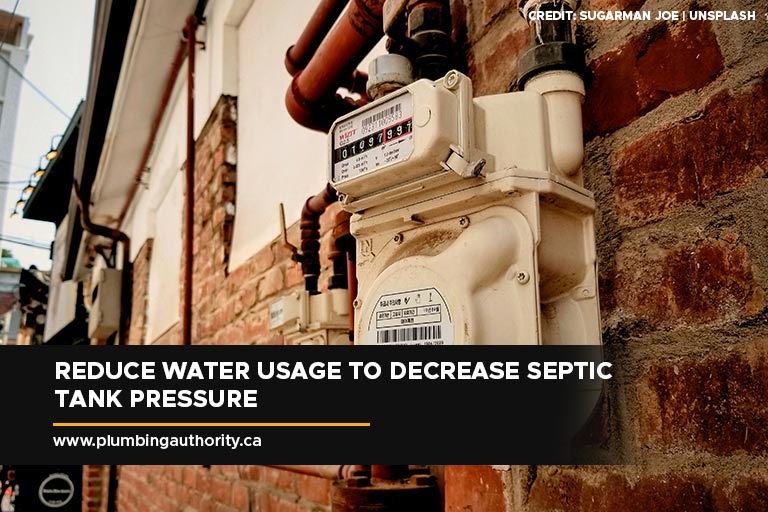
If you own a home with a septic system, regular septic tank pumping is a non-negotiable part of responsible homeownership. Your septic tank is a vital component of your wastewater management and neglecting it can create serious problems. These problems can range from foul odours and slow drains to sewage backups and even environmental contamination. Neglecting a septic system isn’t just smelly and inconvenient, it could also decrease the value of your property.
Fortunately, understanding what goes into septic tank pumping and how to plan for this maintenance task can help you avoid issues. A little foresight, budgeting, and seeking out helpful septic tank pumping tips can go a long way in ensuring your septic system functions smoothly and efficiently for years to come.
Planning for Septic Tank Pumping
Planning is key when it comes to septic tank pumping. Here are some key points to consider:
- Frequency: Septic tanks generally need to be pumped every 2 years. However, a larger household or heavier-than-normal use will necessitate more frequent pumping. To determine how often to pump your septic tank, it’s best to consult with a septic professional who can assess your system’s specific needs and recommend a tailored maintenance schedule.
- Finding a Reputable Contractor: Focus your search on licensed septic tank pumping companies near you that have a proven track record and positive customer feedback. It’s essential to get multiple quotes to ensure you’re getting a fair price. Verify that any potential company has the proper insurance coverage and adheres to environmentally responsible waste disposal practices.
- Determining Access: Make sure your septic tank’s access points are clear and easily reachable by the pumping truck. If your tank is buried, you might need to have it located and uncovered for the service, which could impact the overall cost, so factor this in.
- Permitting: Contact your local building department or health authority to find out if specific permits are required for septic tank pumping in your area. Obtaining any necessary permits can add a bit of time to the process, so start this inquiry early.
- Scheduling: Ideally, schedule your septic pumping during a dry period. Excessively wet ground conditions can make it difficult or impossible for the pumping truck to access your septic tank, potentially leading to delays and rescheduling.
Budgeting for Septic Tank Pumping

The size of your septic tank can influence the cost
Septic tank pumping isn’t an expensive ongoing cost, but it’s wise to factor it into your household budget. Here are some points to keep in mind:
- Understand the Average Cost: Find out what septic pumping typically costs in your area for different tank sizes. Research current rates to establish a starting point for budgeting. Remember that location or tank complexities can impact the final price.
- Get Cost Estimates: Reach out to multiple licensed septic companies for itemized quotes, including the specific cost of septic tank pumping. This comparison helps determine the most competitive septic tank pumping cost within your area and lets you accurately budget for the expense.
- Consider Potential Extras: Don’t be caught off guard by unexpected fees! Ask if costs for locating a buried tank, additional inspections, or any needed repairs are included in the initial quote.
- Inquire About Discounts: See if companies offer any discounts for combining services (like pumping and inspection) or booking during slower seasons. Also, investigate if your local government offers assistance programs for septic maintenance costs.
- Create a Savings Plan: Avoid financial strain by saving a little each month specifically for your septic system. This fund makes pumping costs far more manageable when the time comes.
- Factor in Long-term Cost: Think of regular pumping as an investment, not just an expense. Proper maintenance significantly extends the lifespan of your septic system, preventing far costlier repairs or even premature system replacement.
- DIY Isn’t the Answer: Leave septic pumping to the professionals! Self-pumping risks damaging your system, breaking local regulations, and potentially creating health hazards. The long-term costs of improper pumping can far outweigh the price of professional service.
Saving Tips for Septic Tank Pumping

Reduce water usage to decrease septic tank pressure
Here are some practical ways to reduce the frequency of septic tank pumping, and potentially save money:
- Reduce Water Usage: The less water flowing into your septic tank, the longer it can effectively process waste. Repairing even small leaks, upgrading to water-efficient appliances, and making conscious choices like opting for shorter showers can significantly decrease the strain on your system.
- Protect Your Drain Field: Think of your drain field as a delicate filtration system. Weight from vehicles can damage pipes or compact the soil, hindering the absorption process and potentially leading to system failure. Planting only shallow-rooted vegetation over the drain field prevents root intrusion and keeps the soil structure intact.
- Be Grease-Smart: Grease poses a major threat to both your pipes and septic tank. As it cools, it forms a thick, stubborn layer that can cause blockages, reduce tank volume, and necessitate more frequent pumping. Always dispose of cooled, solidified grease in your trash bin.
- Trash Can, Not Toilet: Your septic system is designed to handle biodegradable waste. Flushing items like “flushable” wipes, paper towels, or hygiene products can lead to clogs that tax the system and require pumping to clear. The “only human waste and toilet paper” rule is your best defense.
- Use Septic-Safe Products: Many cleaning products contain harsh chemicals that destroy the bacteria that are crucial to your septic tank’s function. Choosing septic-safe cleaners and detergents protects this bacterial ecosystem, helping your tank work at its full potential.
- Consider Additives: Bacterial additives act like a “supercharge” for your tank. Their concentrated dose of beneficial bacteria speeds up waste breakdown, which can sometimes help extend the recommended timeframe between pumping services.
- Schedule Strategically: Inquire with septic companies about potential discounts for scheduling your pumping outside of their peak season. This strategy, combined with the other preventative tips and knowing the signs your septic tank needs pumping, can offer significant cost savings over time.
Neglecting your septic system can lead to costly repairs, environmental contamination, and a headache of a problem to fix. Proactive septic tank pumping isn’t just about preventing smelly situations – it’s a wise investment that extends the life of your system, protects your property value, and safeguards the surrounding environment.
By following smart practices, along with regular maintenance from experts, you’ll enjoy peace of mind and help ensure a healthy, functional septic system for years to come. If you need reliable septic pumping in Everett or throughout Ontario, trust the professionals at Plumbing Authority. Their experienced technicians can assess your system, pump your tank, and provide the maintenance needed for optimal performance. Contact them today at (647) 992-7473.




